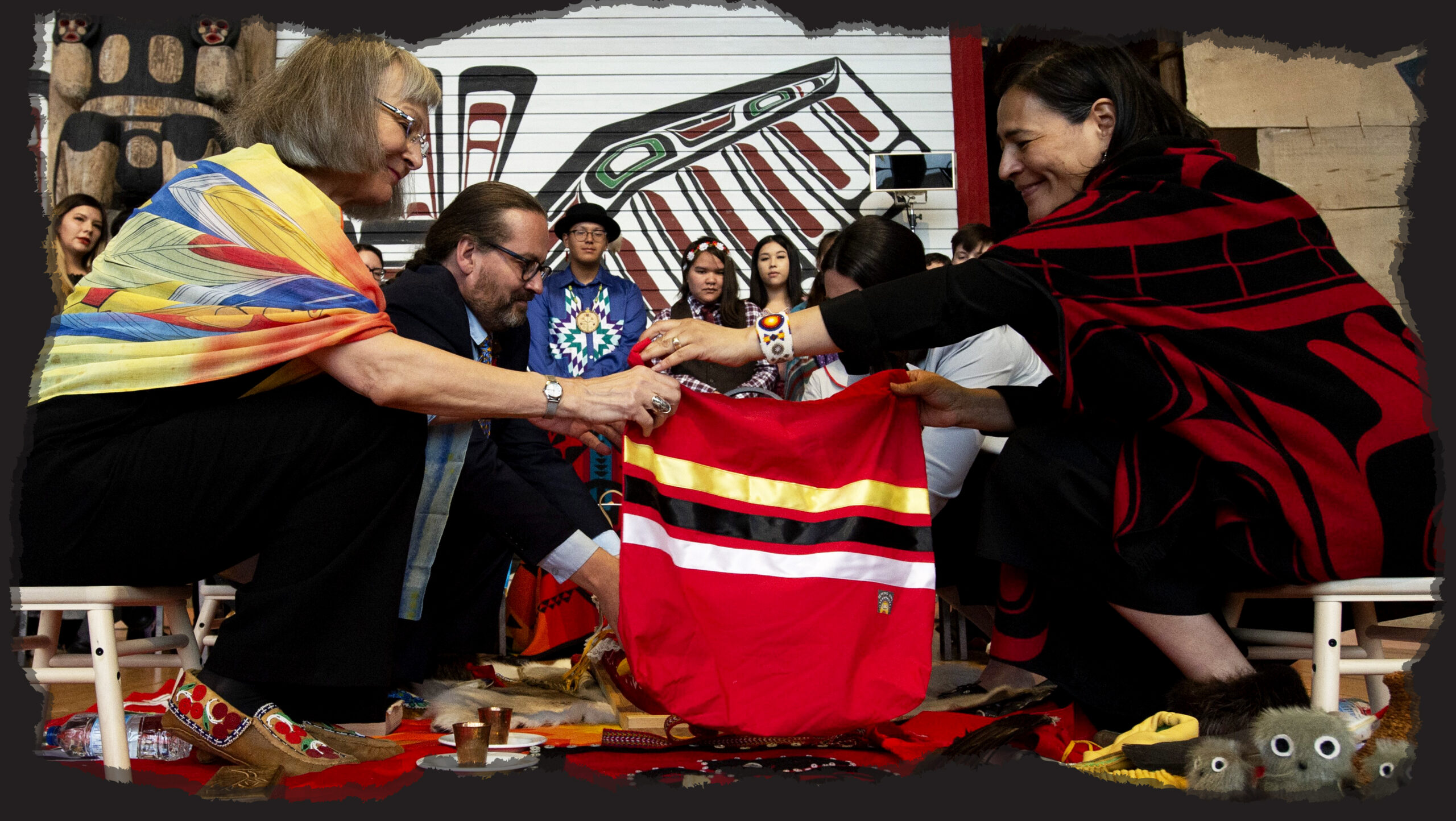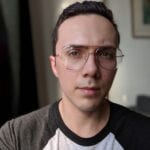When the National Inquiry into Missing and Murdered Indigenous Women and Girls released its final report last month, the picture it painted was bleak. After three years of community consultations and meetings, Chief Commissioner Marion Buller equated the violence against Indigenous women and girls, rooted in the ills of colonialism, to genocide.
The report made a point of also focusing on the unique challenges and needs of LGBTQ and Two-Spirit people — a population the inquiry says “are most often forgotten in discussions about violence” against Indigenous people. And experiences of many who are Two-Spirit or LGBTQ, the inquiry found, are equally perilous.
Historically, Two-Spirit people held respected positions in their communities for their ability to see across different genders. The term is thought to originate in the 1990s, but gender-diverse people in Indigenous communities have existed long before that. (The term carries a different weight across different nations and for different people — not all Indigenous LGBTQ people identify as Two-Spirit.) Commissioner Brian Eyolfson says the role of Two-Spirit people in their communities drastically changed after colonization. “With the patriarchy of colonialism, the sexism [and] the racism, along came the transphobia and homophobia,” he says.
The inquiry found Two-Spirit and LGBTQ people experience colonial violence and oppression in a similar way to Indigenous women and girls. To put that into perspective: Indigenous women and girls are already 12 times more likely to face violence than non-Indigenous women and face a homicide rate of seven times higher than non-Indigenous women.
Two-Spirit and queer Indigenous people, the report adds, face even more barriers than Indigenous women and girls in areas such as healthcare, child welfare, access to justice and police — institutions that are often rooted in transphobia and homophobia, which fuels the ongoing distrust of these systems. The inquiry doesn’t cite statistical examples because there are too few of them. National statistics on the mental health and general wellness of Two-Spirit people, in particular, don’t exist.
These barriers create a catch-22 for Two-Spirit and LGBTQ people: While colonial ideas of gender and sexuality embedded in communities can force people away from their homes, the promise of a safe haven in urban centres is quickly quashed with more isolation and alienation. And that alienation can result in increased poverty, homelessness and in tragic cases, death.
That was the case in Winnipeg for Divas Boulanger, a trans women who was murdered. Boulanger moved to the city from the Berens River First Nation to pursue an education. She went missing in 2004, and the man who murdered her is currently serving a life sentence. Among loved ones who testified at the inquiry, Boulanger’s friend said her death meant “losing my best friend.”
In 2008, Rose Osborne, a trans woman, was also murdered in Winnipeg. Their sister, Helen Betty, was killed almost 40 years earlier in 1971; her death sparked a review of Manitoba’s justice system. An obituary describes Osborne as a carpenter and general labourer who had a “graceful and joyful presence,” and could always be counted on by their nieces and nephews.
Among the missing in Winnipeg is Brandy Wesaquate, a trans person. Brandy’s aunt testified about her disappearance when the inquiry stopped in Saskatoon. She said Brandy was “kind and caring and funny . . . and that she, too, was taken, and that her life mattered, too.”
For Monica Forrester, the manager of Indigenous programs for the Toronto sex worker advocacy group Maggie’s, the inquiry’s inclusion of Two-Spirit and LGBTQ voices is a step forward in addressing these inequities. “We need to be able to make sure that no one is turned away, no one’s voices are lost or silenced,” she says.
Forrester is also participating in the Toronto Police missing persons review following concerns over how the force has handled those cases. She sees several of the issues that fuel the report’s recommendations as applicable to the missing person’s review, which was launched in light of cases of missing men in Toronto’s gay village. The review, as a result, will include liaison with LGBTQ2 communities. “These are things that are still going on . . . and it’s not going to go away overnight,” Forrester says. “As a community we need to challenge them, we need to be on them around making sure these things don’t go unnoticed.”
And the inquiry’s goal is to make sure no one goes unnoticed. When it comes to the disappearances and deaths of Two-Spirit and LGBTQ Indigenous people, a lack of a consistent and accurate databases to track them contributes “to the erasure or invisibility of 2SLGBTQQIA individuals and their experiences,” the report reads.
When asked about how the government will work to improve inequities for LGBTQ and Two-Spirit folks, Randy Boissonnault, the special advisor to the Prime Minister for LGBTQ2 issues, said in an email statement:
“Our job now, and the job of other governments, is to develop a national action plan — as called for by the Inquiry — to implement their recommendations, that is distinctions-based and flexible. This action plan must be developed in partnership with First Nations, Inuit and Métis governments and organizations, the families of missing and murdered Indigenous women, girls and LGBTQ and Two-Spirit people, survivors.”
Additionally, the government has committed to developing and implementing a national action plan in response to the report’s findings — but no concrete timeline for that plan has been laid out. “We will have an action plan where our partners think it’s adequate,” Minister for Crown-Indigenous Relations Carolyn Bennett recently said on CTV’s Question Period. “We will work with our partners, and we will get to that place where we will have a roadmap for the concrete actions to stop this tragedy.”
Without a defined governmental plan in place, community organizers are focusing their efforts on improvement. Forrester is already looking ahead. She’s in the process of organizing a gathering in the fall for sex workers that will include LGBTQ and Two-Spirit communities in order to form their own reponse to the inquiry’s findings.
In many communities, Two-Spirit folks are working to both undo homophobic and transphobic colonial and Christian teachings, and to create space within traditional, gendered practices and ceremonies.
Emma Antoine, a Two-Spirit Anishnaabe youth living in Victoria, is among those working to Indigenize sexual health. Antoine hopes the inquiry will help deepen understanding from non-queer and non-Two-Spirit people within their communities. Full moon ceremonies, for instance, are seen as times of healing for women; but, Antoine has learned from other community members, they can also be a welcoming space for others who don’t identify as female. “For me, it’s about being seen and heard, and being understood as I am,” Antoine says. “I think we have those understandings . . . our family members who aren’t queer can support in ways that feel good to be supported.”
Seeing each other, Antoine adds, can bring communities closer together. Colonialism and the violence it inflicts, they say, blinds people to meeting others where they’re at, and holding space for important ceremony is disrupted.
Still, Antoine doesn’t view the report as a final solution: Communities already have ways of taking care of each other and responding to colonial violence.
But they also call settlers to the table to listen to the inquiry and the voices of all Indigenous people — otherwise the colonial violence will continue to be perpetuated.
“People’s unwillingness and inability to see us as people . . . it’s a contributing factor that’s shared between cisgender Indigenous female experiences and Two-Spirit and LGBTQ Indigenous experiences.”
For immediate emotional assistance, call 1-844-413-6649. This is a national, toll-free 24/7 crisis call line providing support for anyone who requires emotional assistance related to missing and murdered Indigenous women and girls. You can also access long-term health support services such as mental health counselling and community-based cultural services through Indigenous Services Canada.
Legacy: July 9, 2019 3:00 pmThe headline and story have been updated to more accurately reflect the identities of Two-Spirit folks.


 Why you can trust Xtra
Why you can trust Xtra


